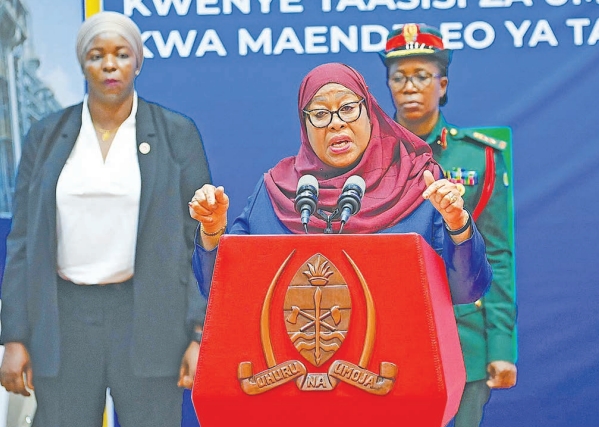Treasury Registrar’s corner: Tanzania’s Public Entities: Expanding global horizons

IN an increasingly interconnected world, where economies are bound by global opportunities, Tanzania stands at a pivotal moment in its economic journey.
Last August, President Samia Suluhu Hassan issued a strong call at a forum in Arusha Region, urging Tanzanian public entities to think beyond borders. This was not just an ordinary statement; it was a rallying cry for a nation determined to unlock its full economic potential.
A plain reality
While many countries celebrate public entities that contribute over 30 per cent to their Gross National Income (GNI), Tanzania faces a different reality.
Its Public and Statutory Corporations (PSCs) and minority interest corporations currently account for only three per cent of the non-tax revenue collected by the Office of the Treasury Registrar (OTR). This significant gap not only reveals a considerable challenge but also highlights a vast pool of untapped potential.
In her address, President Samia stressed the need for change. “Entities that excel internationally are those offering world-class services,” she said.
She reminded public entities that merely participating in global markets is no longer sufficient. For Tanzania to succeed on the international stage, it must elevate its service delivery to meet or exceed global standards.
A call for transformation
President Samia’s remarks resonate deeply within a system where many public entities are struggling to meet profitability targets and deliver value. This is a moment ripe for introspection and reform.
To reverse this trend, a thorough evaluation of service delivery practices is essential. Following this, strategic improvements must be made to instill a culture of excellence within Tanzania’s public sector.
Tanzania is now exploring opportunities for its parastatals to invest beyond its borders, a strategy in line with a growing global trend—countries leveraging the strengths of their public sectors to carve out economic niches internationally.
As Treasury Registrar Nehemiah Mchechu said, the government has invested a staggering 86.3tri/- into 309 public entities, 253 of which are fully state-owned. Yet, only a few of these entities have ventured into international markets.
Learning from success
One of the few success stories to date is CRDB Group, the only partially government-owned entity that has successfully expanded its reach beyond Tanzania, with operations in Burundi and the Democratic Republic of the Congo (DRC). This modest but significant success underscores the untapped potential awaiting other public entities that are willing to embrace global opportunities.
The role of the government
To support this transition, the government is committed to providing the capital and backing necessary for international expansion. Mr Mchechu emphasised the importance of Tanzania adopting strategies similar to those used by successful foreign firms, many of which are state-owned.
This approach aims to not only boost profitability but also position Tanzania as a competitive player in East Africa and beyond.
The government will also introduce regular performance evaluations for public entities, ensuring that accountability and continuous improvement become integral to their operations. This move is not just a bureaucratic step—it represents a fundamental shift toward a results-driven culture aligned with global best practices.
A vision for the future
Tanzania’s journey toward global engagement through its public entities is both challenging and promising. The government’s proactive stance, combined with a focus on quality, paves the way for this transformation.
As public entities respond to this call, they must develop strong frameworks for international engagement. This includes investing in talent, adopting best practices from global counterparts and fostering strategic partnerships.
In essence, President Samia’s vision goes beyond merely expanding markets. It’s about cultivating a mindset of innovation and excellence within Tanzanian public institutions.
By leveraging the strengths of both PSCs and minority interest corporations, Tanzania can make significant contributions to its national economy and assert its presence on the global stage.
The time for action is now. The future of Tanzania’s public entities depends on their willingness to adapt, innovate and thrive in a world without borders.





